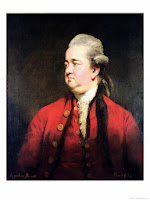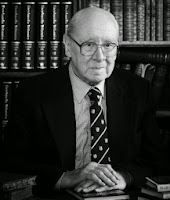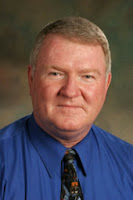What they say about Prophet Muhammad

During the Crusades, all sorts of slanders were leveled
against the Prophet Muhammad. With the birth of the modern age, which is characterized
by a greater degree of religious tolerance and freedom of thought, there has
been a change in the approach of western authors who study the Prophet's life
and characters. A sampling of their views is given below.
Unfortunately, the West still has not realized the greatest
aspect of the Prophet: he is the last of the prophets sent by God to guide mankind
to the truth. In spite of its great advances in other areas of life, the West
still has not made a sincere and objective attempt to understand the message
brought by the Prophet. Although some people have seen him as a person worthy
of high praise and have paid him glowing tributes on the levels of personal
integrity and achievement, his claim of being the Prophet of God has almost
always been rejected, either explicitly or implicitly, as false. It is time to treat
this last claim with a spirit of true objectivity and open-mindedness.
Just who was Muhammad? According to all accounts, which are authentic
and accepted by all Muslim scholars, up until the age of forty he was known to
his people as a decent man. He was not a statesman, a preacher, or an orator.
He was never seen discussing principles or theories associated with
metaphysics, ethics, law, politics, economics, or sociology. He possessed an
excellent character, charming manners, and was highly cultured. But his
characteristics are not so deeply striking and so radically extraordinary that
people would expect something great and revolutionary from him in the future.
One of Muhammad's customs was to retire to a nearby cave for
private sessions of thinking and meditation. This in itself was not unusual,
for other people also did this. But when he came out of his cave after
receiving the first revelation, he was completely transformed.
Several questions need to be asked here. Is it possible for
a person known and respected for his honesty and trustworthiness to announce
suddenly that he is the Prophet of God and then begin to call upon his people
to abandon their old lives and beliefs for new ones? Also, if he were a false
prophet, why did he suffer through all of the hardships that his people imposed
upon him? And why, when his people offered to accept him as their king and to
lay all the riches of the land at his feet, if only he would cease and desist,
did he refuse to do so? Why did he continue to preach Islam in the face of all
kinds of insults, social boycott, and even physical assault by his own people?
Was it not only God's support, along with his firm will, to
disseminate the Islamic revelation and his deep-rooted belief that ultimately Islam
would emerge as the sole universal religion, that he refused to be cowed and
swayed by any of the opposition and plots launched against him by his enemies?
Furthermore, if he intended to use Islam as a rival religion against Judaism
and Christianity, why did he make belief in Jesus Christ, Moses, and all of the
other prophets of God a basic requirement of the Islamic faith?
Is it not an incontrovertible proof of his prophet-hood
that, despite being unlettered and having led a very normal and quiet life for forty
years, that all of Arabia stood in awe and wonder of his wonderful eloquence
and oratory when he began to preach Islam? It was so matchless that legions of
Arab poets, preachers, and orators of the highest caliber failed to produce a
composition that could compare with or equal it. And, above all, how could he
state scientific truths that would not be known by to the rest of humanity for centuries
and that he could not learn about in any other way except through divine
revelation?
Last but not least, why did he lead an even harder life
after gaining power and authority? Just ponder the words he uttered when he was
dying: "We, the community of the Prophets, do not inherit. All that we
leave is for charity"
Consider what others have said about this extraordinary man:
Lamartine:
If greatness of purpose, smallness of means, and astounding results
are the three criteria of human genius, who could dare to compare any great man
in modem history with Muhammad?
The most famous men created arms, laws and empires only They
founded, if anything at all, no more than material powers which often crumbled
away before their eyes This man moved not only armies, legislation, empires,
peoples and dynasties, but millions of men in one-third of the then-inhabited
world; and more than that he moved the altars, the gods, the religions, the ideas,
the beliefs and souls.... His forbearance in victory, his ambition which was
entirely devoted to one idea and in no manner striving for an empire, his
endless prayers, his mystic conversations with God, his death and his triumph
after death all these attest not to an imposture but to a firm conviction which
gave him the power to restore a dogma. This dogma was twofold: the unity of God
and the immateriality of God; the former telling what God is, the latter
telling what God is not; the one overthrowing false gods with the sword, the
other starting an idea with the words. Philosopher, orator, apostle, legislator,
warrior, conqueror of ideas, restorer of rational dogmas, of a cult without
images; the founder of twenty terrestrial empires and of one spiritual empire,
that is Muhammad. As regards all standards by which human greatness may be
measured, we may well ask, is there any man greater than he?
[Histoire de la Turquie, Pans 1854,
Vol. 11, pp. 276-77.]
Edward Gibbon and Simon Ocklay:
It is not the propagation but the permanency of his religion
that deserves our wonder; the same pure and perfect impression which he
engraved at Mecca and Madina is preserved, after the revolutions of twelve
centuries by the Indian, the African and the Turkish proselytes of the Koran...
The Mahometans have uniformly withstood the temptation of reducing the object
of their faith and devotion to a level with the senses and imagination of man.
I believe in One God and Mahomet is the Apostle of God' is the simple and
invariable profession of Islam. The intellectual image of the Deity has never
been degraded by any visible idol; the honors of the prophet have never
transgressed the measure of human virtue; and his living precepts have
restrained the gratitude of his disciples within the bounds of reason and
religion.
[History of the Saracen Empire, London
1870, p 54.]
Bosworth Smith:
He was Caesar and Pope in one; but he was Pope without
Pope's pretensions, Caesar without the legions of Caesar: without a standing
army, without a bodyguard, without a palace, without a fixed revenue. If ever
any man had the right to say that he ruled by the right divine, it was
Mohammad, for he had all the power without its instruments and without its
supports.
[Mohammad and Mohammadanism, London
1874, p 92.]
Annie Besant:
It is impossible for anyone who studies the life and
character of the great Prophet of Arabia, who knows how he taught and how he
lived, to feel anything but reverence for that mighty Prophet, one of the great
messengers of the Supreme. And although in what I put to you I shall say many
things which may be familiar to many, yet I myself feel whenever I re-read them,
a new way of admiration, a new sense of reverence for that mighty Arabian
teacher.
[The Life and Teachings of Muhammad,
Madras 1932, p 4]
W Montgomery Watt:
His readiness to undergo persecution for his beliefs, the
high moral character of the men who believed in him and looked up to him as
leader, and the greatness of his ultimate achievement all argue his fundamental
integrity To suppose Muhammad an impostor raises more problems than it solves. Moreover,
none of the great figures of history is so poorly appreciated in the West as
Muhammad.
[Mohammad At Mecca, Oxford, 1953, p 52.]
James A. Michene:
Muhammad, the inspired man who founded Islam, was born about
AD. 570 into an Arabian tube that worshipped idols. Orphaned at birth, he was
always particularly solicitous of the poor and needy the widow and the orphan,
the slave and the downtrodden. At twenty he was already a successful businessman,
and soon became director of camel caravans for a wealthy widow. When he reached
twenty-five his employer, recognizing his meet, proposed marriage. Even though
she was fifteen years older, he married her, and as long as she lived remained
a devoted husband. Like almost every major prophet before him, Muhammad fought
shy of serving as the transmitter of God's word, sensing his own inadequacy But
the angel commanded Read'. So far as we know, Muhammad was unable to read or
write, but he began to dictate those inspired words which would soon
revolutionize a large segment of the earth: "There is one God." In
all things Muhammad was profoundly practical. When his beloved son Ibrahim
died, an eclipse occurred, and rumors of God's personal condolence quickly
arose. Whereupon Muhammad is said to have announced,' An eclipse is a
phenomenon of nature. It is foolish to attribute such things to the death or
birth of a human being." At Muhammads own death an attempt was made to deify
him, but the man who was to become his administrative successor killed the
hysteria with one of the noblest speeches in religious history: 'If there are
any among you who worshipped Muhammad, he is dead. But if it is God you worshipped,
He lives forever'.
["Islam: The Misunderstood
Religion,"
Reader's Digest (Amencan ea.) May 1955,
pp. 68-70.]
Michael H. Hart:
My choice of Muhammad to lead the list of the world's most influential
persons may surprise some readers and may be questioned by others, but he was
the only man in history who was supremely successful on both the religious and
secular level.
[The 100: A Ranking of the Most
Influential Persons in History,
New York: Hart Publishing Company Inc. 1978,
p 33.]
Read Online, The Life of Prophet Muhammad [peace be upon him] by the name "The sealed Nectar"
Download [pdf][full_width]


















No comments